|
Hustle Hope Not Dope: 2nd Annual Event
Hosted by Caldwell Recovery Center LLC Saturday, July 22, 2023, from 12:00 - 5:00 PM MT Indian Creek Plaza, Caldwell, Idaho What is Hustle Hope Not Dope, you ask? It's an event to bring awareness about addiction to our community, to bring resources and make the available for people to learn about them, to have a sober event, a family event and to show others that no matter what you dream is, it is absolutely achievable to turn it into you full time job and something you love. Learn more at: https://www.facebook.com/events/1679831825779762/ or email [email protected] or call Monika at 208-880-3303 or Katarina at 208-599-6794.
0 Comments
Losing a Child to Fentanyl Murder/Overdose: Tips and Tools For Grieving Your Child Due to Overdose
Wednesday, July 27th, at 7:00 PM CST Join Kelli Neilsen, The Grief Guru, for a FREE webinar, "Losing a Child to Fentanyl Murder/Overdose." Connect with other parents and learn powerful tools for your recovery! - Learn from people who have experienced the same loss - Move from reactive to proactive in your grief recovery - Learn the "how to's" of grieving that can help to accelerate your recovery After registering, you will receive a confirmation email containing information about joining the meeting. Register at the link in bio at: https://app.thegriefguru.com/fentanyl-event-registration-page Coping With Loss When Death Is Stigmatized Webinar
Join the FREE “Coping With Loss When Death Is Stigmatized,” TAPS Institute Webinar on January 18, 2022, from Noon - 1:00 pm EST. Dr. Kenneth Doka pioneered the concept of “disenfranchised grief,” giving a name to the reality in which mourners feel they don’t have the right to express their loss openly or fully because of the cultural stigma about how the person died. For example, those mourning a death by suicide or drug overdose may often feel that others are judging the choices and behaviors of the person who has died, or the actions taken (or not taken) by those who are grieving. Join Dr. Doka for a compelling conversation about how survivors can cope with loss when facing these difficult situations, and how professionals can better understand and support them. Register at www.taps.org/institute 2/11/2021 Do People Hide Their Grief Over Overdose-Related Deaths Because of Addiction-Related Stigmas?Read NowDo People Hide Their Grief Over Overdose-Related Deaths Because of Addiction-Related Stigmas? Drug addiction is a severe health danger that can put people at a high risk of many health issues. Sadly, many individuals die from overdoses every year, and their loved ones may struggle to understand this situation. Even worse, stigmas on addiction may make this mourning process and treatments such as rehab for mental illness harder to process appropriately.
Addiction-Related Stigmas Exist Stigmas can be tough to fight because they are often so ingrained in culture and how people perceive the world. For example, stigmas about addiction – and other mental health illnesses – can paint a damaging picture. The idea that a person with an addiction is "weak" or "immoral" is widespread, and so is the idea that they "deserve" to suffer from addiction. These stigmas are a real issue because they create a feeling of otherness to those with an addiction. This scenario strips them of their humanity and can make it harder for people to feel sympathy for them. Unfortunately, these stigmas can affect the loved ones of a person who has an addiction and make that individual's overdose death harder to mourn or accept. Whether that loved one feels unable to mourn due to stigmas placed on the situation by others or by themselves is irrelevant – a stigma is a stigma. These feelings make it harder for a person to mourn a loved one. Instead of healing, they might face a challenging journey that may affect their recovery and cause a high level of emotional suffering that refuses to go away. Why People Hide Grief Many people hide grief over a loved one's death, an emotional reaction that is understandable but ultimately unhealthy. The reasons for this behavior can be quite complex, particularly if an individual experienced conflict with the person who passed. Overdose deaths might make a person's struggles with mourning even more difficult. First of all, a person might disown a loved one with an addiction and may not recognize them in their life. Or, loved ones might be mourning a person with an addiction before they die because their addiction has changed the person and their lives so drastically. An individual may feel shame from others in their community and deal with their shame by hiding their mourning and depression. But unprocessed emotions can challenge a person, making it difficult for them to move on from a loss. Even though they don't publicly – or even personally – admit to their grief, it exists. Left to fester, negative emotions such as grief can worsen and cause more damaging emotional health issues. Therefore, it is essential to fight addiction stigmas and process death properly. Ways to Fight Stigma Fighting the stigma against addiction starts by understanding your emotions. Sometimes people do not realize that they feel stigmas or behave in ways that may upset or damage their loved ones. For instance, individuals may use language that is very negative towards addiction and people with this disease, which may affect how they think about it. This type of language includes terms such as addict, junkie, user, or drunk. These terms are harmful and can create a stigma in a person's mind. The terms put the disease before the person by defining them by it. As a result, those who use these terms reinforce the mistaken belief that a person with addiction chooses to be addicted, worsening their stigma. Instead, it is crucial to understand that addiction is a disease, one that requires professional rehab help to combat. People do not choose to be addicted and they aren’t solely defined by their addictions. They are people who also have addictions to drugs or alcohol, not addicts, junkies, or drunks. Accepting these distinctions can make it easier for a person to grieve their loved ones and adequately mourn them. Remember – mourning is an essential part of recovery after death, and removing addiction stigmas may allow a person to accept death and avoid hiding their emotions. Ways You Can Help If someone is suffering from grief due to the overdose death of a loved one, you could suggest that they talk with a therapist or another professional. By talking with therapists, people can explore and express their feelings without judgement. Therapists can help people acknowledge their grief while helping them navigate their new lives without their loved ones. Support groups can also provide assistance. Groups such as Grief Recovery After a Substance Passing (GRASP) include members who have suffered similar losses. GRASP notes that people sometimes treat addiction-related deaths differently, so it “was created to offer understanding, compassion, and support for those who have lost someone they love through addiction and overdose.” There are grief support groups in specific geographic areas and ones that allow people to meet virtually or use online services to share and find information. The groups provide support and let people know that they’re not alone. They remind people that others have had similar experiences and are willing to help. Assistance can also come in other forms. Instead of asking a grieving person what you can do, do something. You can:
Just talking can also provide assistance. People might be worried that grieving people don’t want to talk about their loved ones, but the opposite is often true. By sharing stories and memories about their loved one, you allow people to discuss their grief and what their loved one meant to them. By helping people take control of their emotional health, you give them a better chance to be happy and healthy. Just as importantly, they can give their loved ones the love and attention they need so they can also mourn and address their emotions. Author bio: Patrick Bailey is a professional writer mainly in the fields of mental health, addiction, and living in recovery. He attempts to stay on top of the latest news in the addiction and the mental health world and enjoys writing about these topics to break the stigma associated with them. Sources drugabuse.gov – Addressing the Stigma That Surrounds Addiction drugabuse.gov – Words Matter – Terms to Use and Avoid When Talking About Addiction ncbi.nlm.nih.gov – Understanding Stigma of Mental and Substance Use Disorders ncbi.nlm.nlh.gov – Grief and Mourning Gone Awry: Pathway and Course of Complicated Grief grieflink.org.au – Unrecognized or Hidden Grief samhsa.gov – The Power of Perceptions and Understand: Changing How We Deliver Treatment and Recovery Services grasphelp.org - About Us (GRASP) mygriefconnection.org - In-Person Support Groups medlineplus.gov - Bereavement cdc.gov - Grief and Loss Overdose Loss: Moms and their Healing Journey Presented by Eric's House, this is a candid discussion with two mothers who walked the journey of losing a child to a substance. You will hear their stories and their experiences of moving forward with their grief. Watch for FREE here: https://youtu.be/t-jr0Nbwrzc International Overdose Awareness Day
August 31. 2020 International Overdose Awareness Day is a global event held on 31 August each year and aims to raise awareness of overdose and reduce the stigma of a drug-related death. It also acknowledges the grief felt by families and friends remembering those who have died or had a permanent injury as a result of drug overdose. International Overdose Awareness Day spreads the message that the tragedy of overdose death is preventable. https://idpc.net/events/2020/08/international-overdose-awareness-day-2020 https://www.overdoseday.com/ Follow on Instagram at @overdoseawarenessday |
Details
Sara J. CobbFounder, My Grief Connection Archives
July 2024
Categories
All
Note: The website contains some affiliate links, which means that if you purchase something through one of these links we may receive a small commission
– at no extra cost to you. I only promote things I have have either personally tried or strongly believe are beneficial. Any commissions earned helps keep this website going. Thank you for using our affiliate links to help My Grief Connection to continue helping grievers find help & hope. Not responsible for the content, claims or representations of the linked sites, videos, movies, podcasts, groups, events, books, articles, etc. This site provides links and general grief support information and is not intended to serve as or replace professional counseling, guidance or treatment. If you are thinking about hurting yourself or someone else, please contact 911 or the suicide hotline at 988. For any type of crisis situation you can text CONNECT to 741741 to chat with a Crisis Text Line counselor. My Grief Connection - Created 04 July 2019 - Privacy Policy This Page Was Updated On 26 July 2024 © 2019-2024 My Grief Connection
|
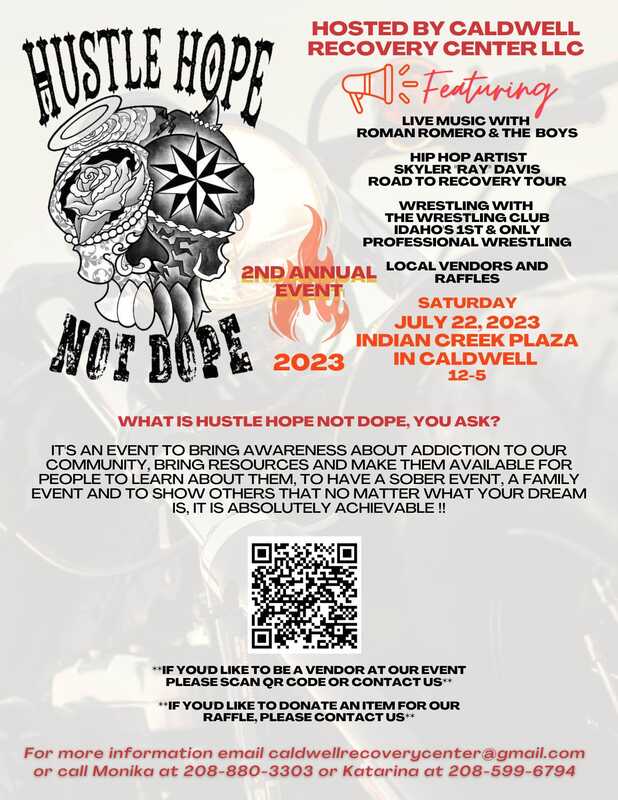
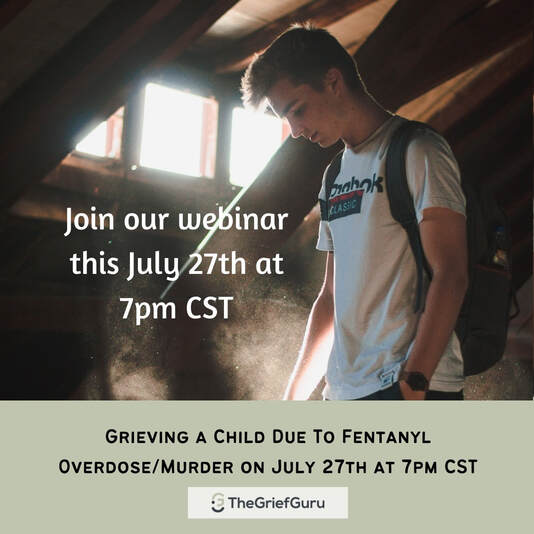
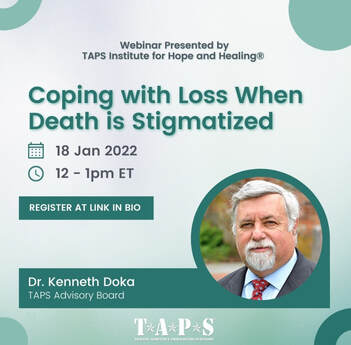
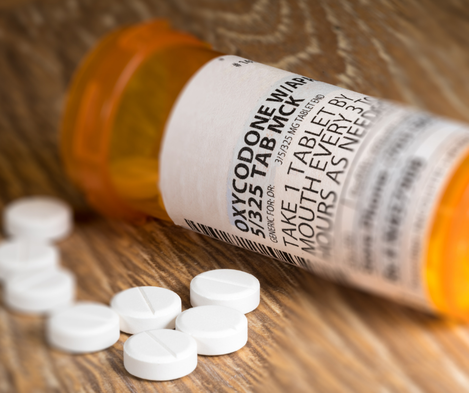
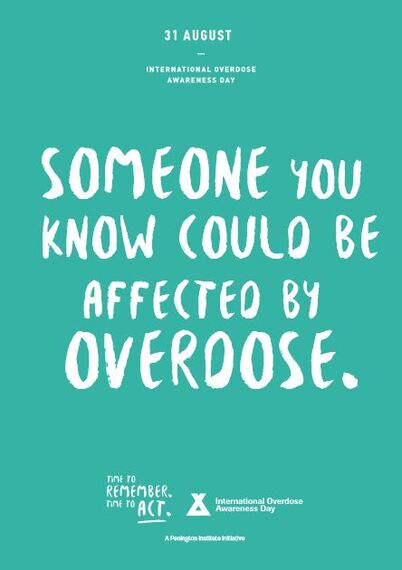
 RSS Feed
RSS Feed